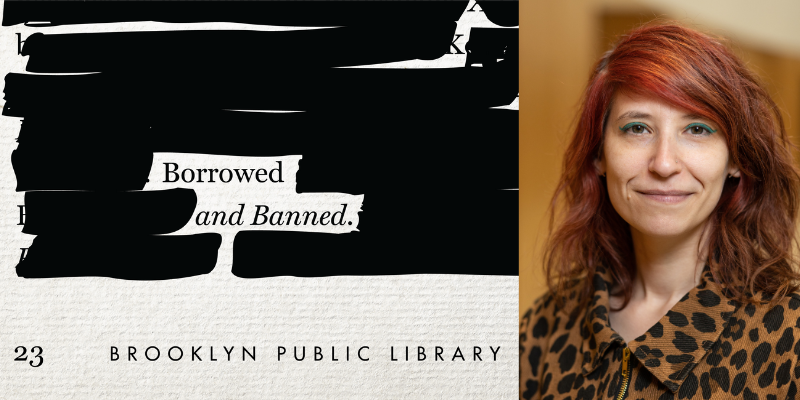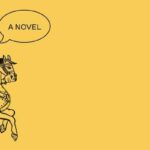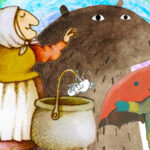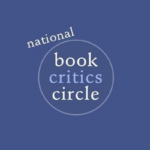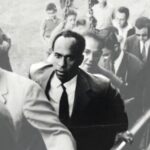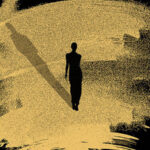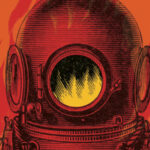Brooklyn Public Library’s Leigh Hurwitz on Helping Young People Resist Censorship
In Conversation with Whitney Terrell and V.V. Ganeshananthan on Fiction/Non/Fiction
In anticipation of Banned Books Week, Brooklyn Public Library’s collections manager Leigh Hurwitz joins co-hosts Whitney Terrell and V.V. Ganeshananthan to discuss how the recent, dramatic rise in book bans disproportionately affects young people, and why BPL has chosen to offer access to its half a million eBooks and audiobooks to every person in the U.S. between the ages of 13 to 21. Hurwitz, one of the librarians behind the groundbreaking digital library card program launched in April 2022, talks about how in its first eighteen months, Books Unbanned has helped more than 7,000 users in all 50 states to access the books they need. Hurwitz unpacks the range of reasons teens cite for needing the cards, including privacy, lack of transportation, and—in some places—the requirement to get a parental signature or use a deadname to acquire a physical card at the local library. They also explain the positive responses from Books Unbanned readers who are able to see marginalized aspects of their identities portrayed on the page for the first time. Hurwitz reads from their Vice article about the program.
Check out video excerpts from our interviews at Lit Hub’s Virtual Book Channel, Fiction/Non/Fiction’s YouTube Channel, and our website. This episode of the podcast was produced by Anne Kniggendorf.
*
From the episode:
Whitney Terrell: Are there challenges to the Books Unbanned program? Have you had any issues? What are you going to do if you do? What happens when this gets on Fox News… if Fox News decides to run a story about this terrible program that you have?
Leigh Hurwitz: We honestly—this is such a boring answer—we really have not had any pushback. A few annoyed emails at the beginning, maybe. But we’ve really only heard from the people that are supportive of this program.
WT: That’s good. Only a few annoyed emails is pretty good for anything a library does.
LH: I know. Yeah, we definitely have patrons who were more annoyed about other things that were happening at the library. But no, we have a wonderful community here of our patrons.
WT: Everyone’s perfect.
LH: We’re here for them, we wouldn’t exist without them. I can tell you one very small personal thing, which I just sort of laughed at, was when I did a Reddit AMA a few months ago. And one person, I guess who attended that, tweeted at BPL with my full name saying, “BPL, do you have any response to this?: Leigh Hurwitz wants to give copies of Hustler to all preschool children in the country.” Just this stock statement, and BPL was incredibly supportive and asked me how I wanted them to handle it. We just ignored it.
WT: Or, Leigh, is that why they put you in the printing room for this interview?
LH: I’m in the printing room! They’re just trying to bury me! I know that this institution is so incredibly supportive of all its staff and pretty unwavering in its commitment to access and intellectual freedom. So I think we have enough goodwill locally and nationally that we would be able to withstand any negative attention from Fox News. Something that’s been happening across the country is that public libraries have seen an increase in bomb threats being called in.
A lot of times it’s because of things like drag story hour. This did happen to us recently as well but it wasn’t directly connected to Books Unbanned. There are other things that are part of this whole boiling cauldron but that aren’t directly related to Books Unbanned.
WT: Well, we’ll see if we can fix that by publishing this podcast.
V.V. Ganeshananthan: I know this is gonna surprise you. There’s not a ton of overlap between our listeners and Fox News watchers, so you may not be at huge risk being with us, but I’m curious just because – for people who maybe don’t know – or just if things have changed since the days when my mother would drop me off at the library and leave me there for hours. If you go to a public library, and you’re 13 years old, and your parents want to see the list of books you checked out, can they? Because it seems like one of the important things here is privacy, right? And that’s one of the things that digital collections allow too, if you’re reading something on your Kindle, it’s less visible than if you’re reading a book with its regular dust jacket. I mean, it sounds like you haven’t had parents writing in to say, “What is my kid reading? And why are you making that possible?” When you’re a minor—which, most of these Books Unbanned readers must be—what privacy rights do you have with what you’re reading?
LH: This is different in every public library system, they all have different requirements about what ID you need to be eligible for a card and things like that. But for anyone who’s 13 years old and up, you do not need a parent or guardian to sign the application or get permission for you to have a library card. For children who are 12 years old and under… I mean, you can have your own library card pretty much as soon as you’re born. For now, we do require anyone who’s 12 years old and under to have a parent or guardian sign the application so that they can have a library card.
But I will say that something we’ve uncovered as a result of Books Unbanned is finding out that there are a lot of public libraries in this country that require you to have a parent or guardian approve your library card application up until 18 years old, which is shocking. And a colleague of mine actually is putting together a survey to see what sorts of policies like this are in place and to say, “Okay, are you doing this because this is just the way you’ve always done it and no one’s evaluated it in a long time, or is there something else at play in this requirement?”
VVG: That’s just wild. You can go get your driver’s license at 16. Why would you be able to get a driver’s license but not a library card?
LH: I know. We take the privacy of all of our patrons extremely seriously. We don’t share data, and we also don’t keep track of what people have borrowed once they return it. So we don’t even keep track of that information. We consider our national teen eCard holders our patrons, too, and we take their privacy just as seriously. And that’s also why one of the reasons for Books Unbanned is to find out what is happening in this country and hear directly from teens themselves. We’ve collected a lot of stories, and we take their privacy and their vulnerability and their sharing of these stories with us really seriously. And so we are figuring out a way that we can get consent from some of them to share their stories, even if it’s in an anonymized way. But I think that that is an example of how we treat our patrons in Brooklyn as well.
VVG: So you’ve been talking about this program’s various successes. And I’m curious about what’s ahead. You mentioned you thought it would be temporary and now it seems like it might be a longer-term fixture and that Seattle Public Library is now on board. I’ve been reading about all of these other things like the Banned Book Club app, where it will sort out what books are banned in your area based on your geolocation and then help you check them out. I was like, “Yes, finally! The geolocation thing doesn’t freak me out anymore!” Anyway, I’m curious about what you have in the works. I understand you may have a new podcast in the wings.
LH: Yes! I’ll mention that first since you brought it up. We have an extension of our Borrowed podcast called Borrowed and Banned, which is seven episodes long and really takes you into the history of censorship in this country, especially as it relates to books and libraries, and takes a macro and micro look at all of this, focusing on individual stories, but also the broader history. I know I keep saying that word ‘history’ but that’s what it is. And just why and how books are being banned and what people can do about it. I think that’s a really important piece of this, too: “Okay, what are we going to do about it now?” It debuts on September 28.
Transcribed by Otter.ai. Condensed and edited by Madelyn Valento. Photograph of Leigh Hurwitz by Gregg Richards.
*
Leigh Hurwitz:
“I Helped Thousands of Teens Impacted By Book Bans. Here’s What They Had To Say” | Vice • Blog posts by Leigh Hurwitz | Brooklyn Public Library
Others:
Banned in the USA: The Mounting Pressure to Censor | PEN America • Books Unbanned | Brooklyn Public Library • “Brooklyn Library’s ‘Books Unbanned’ Team Wins Accolades,” by James Barron, New York Times • How the Brooklyn Library Helped Fight Book Bans in Oklahoma by James Barron, New York Times, Sept. 12, 2022 • Introducing: Borrowed and Banned | Brooklyn Public Library • PEN America & BPL Freedom to Read Advocacy Institute • BookMatch and BookMatch Teen • Reddit AMA with Freedom Forum • Libraries for the People • Fiction/Non/Fiction, Season 6, Episode 45: Celeste Ng on the GOP’s War on Children • Fiction/Non/Fiction, Season 5, Episode 12: Intimate Contact: Garth Greenwell on Book Bans and Writing About Sex • Fiction/Non/Fiction, Season 6, Episode 13: Censoring the American Canon: Farah Jasmine Griffin on Book Bans Targeting Black Writers • “Readers Can Now Access Books Banned in Their Area for Free With New App,” by Christopher Parker, Smithsonian Magazine

